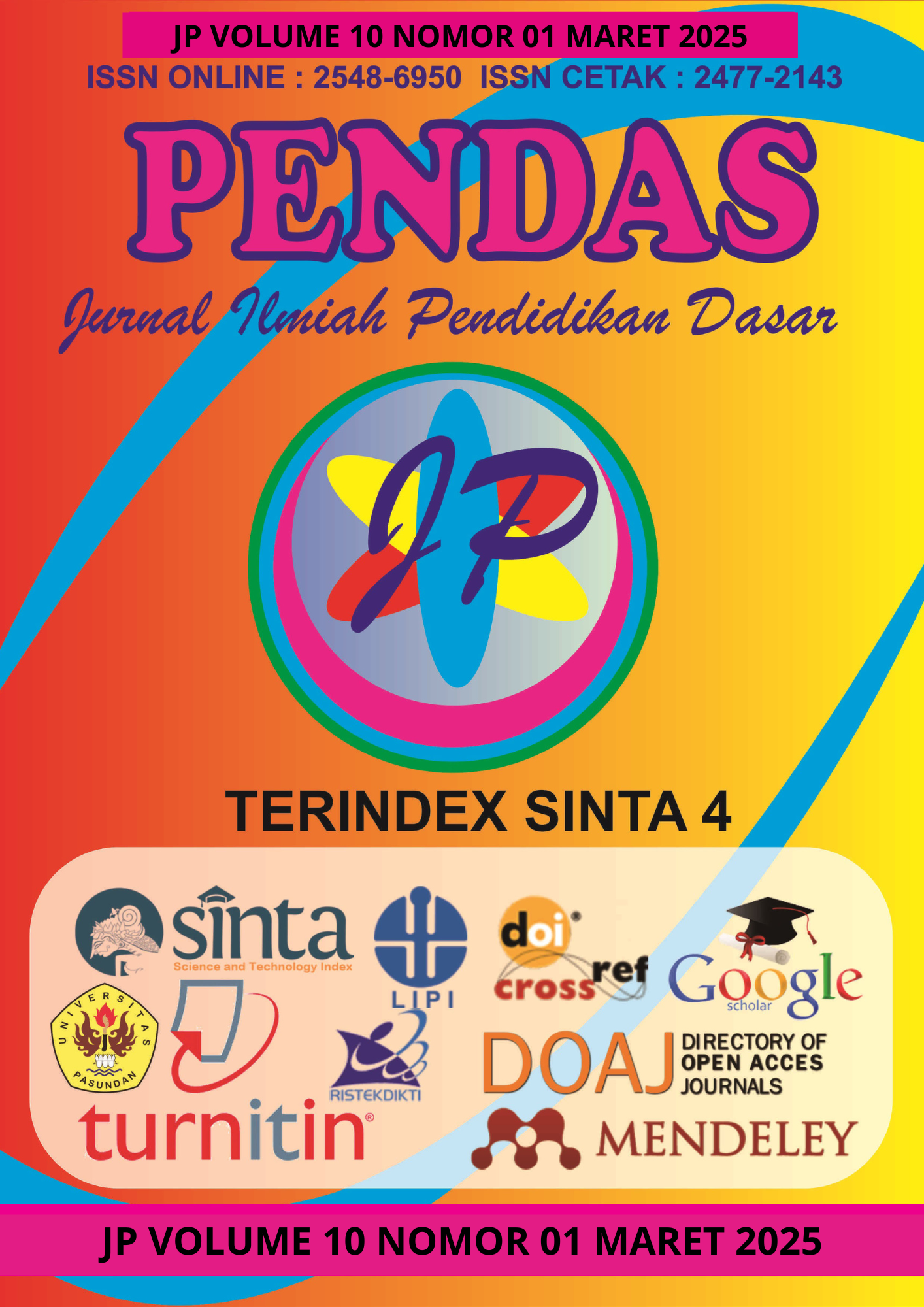PERBANDINGAN PENERAPAN MODEL PROBLEM BASED LEARNING DAN PROJECT BASED LEARNING DITINJAU DARI AKTIVITAS BELAJAR SISWA KELAS V GUGUS III KECAMATAN BONTOMARANNU
DOI:
https://doi.org/10.23969/jp.v10i01.22617Keywords:
PBL Model, PjBL Model, Learning ActivitiesAbstract
This study discusses the comparison of the implementation of the Problem-Based Learning (PBL) and Project-Based Learning (PjBL) models in terms of the mathematics learning activities of fifth-grade students in Cluster III, Bontomarannu District. The study aims to determine whether there is a significant difference in the mathematics learning activities of fifth-grade students using the Problem-Based Learning model compared to the Project-Based Learning model.This research is an experimental study using a counterbalanced design. The population in this study consists of all fifth-grade students in Cluster III, Bontomarannu District, while the selected sample includes students from SD Inpres Bonto-Bonto and SD Inpres Balangpapa, totaling 78 students, chosen using the cluster random sampling technique.The data collection technique in this study is observation to assess students' learning activities. The data analysis techniques used are descriptive statistics and inferential statistics. The research findings indicate that the significance value obtained for students' learning activities is 0.038 < 0.05, leading to the conclusion that there is a significant difference in the learning activities of students taught using the PBL model compared to those taught using the PjBL model.
Downloads
References
Badarudin, B., Efendi, Z. M., & Sukmawati, E. (2022). Implementasi problem based learning untuk meningkatkan kemampuan berpikir kritis siswa SMP. Jurnal Riset Pendidikan Matematika, 9(1), 45-52
Barrows, H. S. (1986). A taxonomy of problem-based learning methods. Medical Education, 20(6), 481–486. https://doi.org/10.1111/j.1365-2923.1986.tb01386.
Barrows, H. S., & Tamblyn, R. M. (1980). Problem-based learning: An approach to medical education. Springer.
Bell, S. (2010). Project-based learning for the 21st century: Skills for the future. The Clearing House: A Journal of Educational Strategies, Issues and Ideas, 83(2), 39–43. https://doi.org/10.1080/00098650903505415
Faridah, L., Harahap, M. S., & Asri, A. (2022). Implementasi problem based learning untuk meningkatkan aktivitas dan hasil belajar siswa. Media Pendidikan, 14(1), 25-34. https://journal.unismuh.ac.id
Guo, J., Zhang, L., & Li, X. (2022). The effectiveness of project-based learning in improving collaborative skills: A meta-analysis. International Journal of Educational Research, 113, Article 101925. https://doi.org/10.1016/j.ijer.2021.101925
Hmelo-Silver, C. E. (2004). Problem-based learning: What and how do students learn? Educational Psychology Review, 16(3), 235–266. https://doi.org/10.1023/B:EDPR.0000034022.16470.f3 x
Hosnan, M. (2014). Pendekatan saintifik dan kontekstual dalam pembelajaran abad 21. Ghalia Indonesia.
Indarta, B., Santoso, A., & Nurfajria, N. (2022). Efektivitas problem based learning dalam meningkatkan keterampilan berpikir kritis siswa sekolah dasar. Jurnal Pendidikan Dasar Indonesia, 7(2), 45-54. https://journal.unismuh.ac.id
Krajcik, J. S., & Blumenfeld, P. C. (2006). Project-based learning. In R. K. Sawyer (Ed.), The Cambridge handbook of the learning sciences (pp. 317–334). Cambridge University Press. https://doi.org/10.1017/CBO9780511816833.020
Trilling, B., & Fadel, C. (2009). 21st century skills: Learning for life in our times. John Wiley & Sons.
Vygotsky, L. S. (1978). Mind in society: The development of higher psychological processes. Harvard University Press.
Downloads
Published
Issue
Section
License
Copyright (c) 2025 Pendas : Jurnal Ilmiah Pendidikan Dasar

This work is licensed under a Creative Commons Attribution 4.0 International License.














































